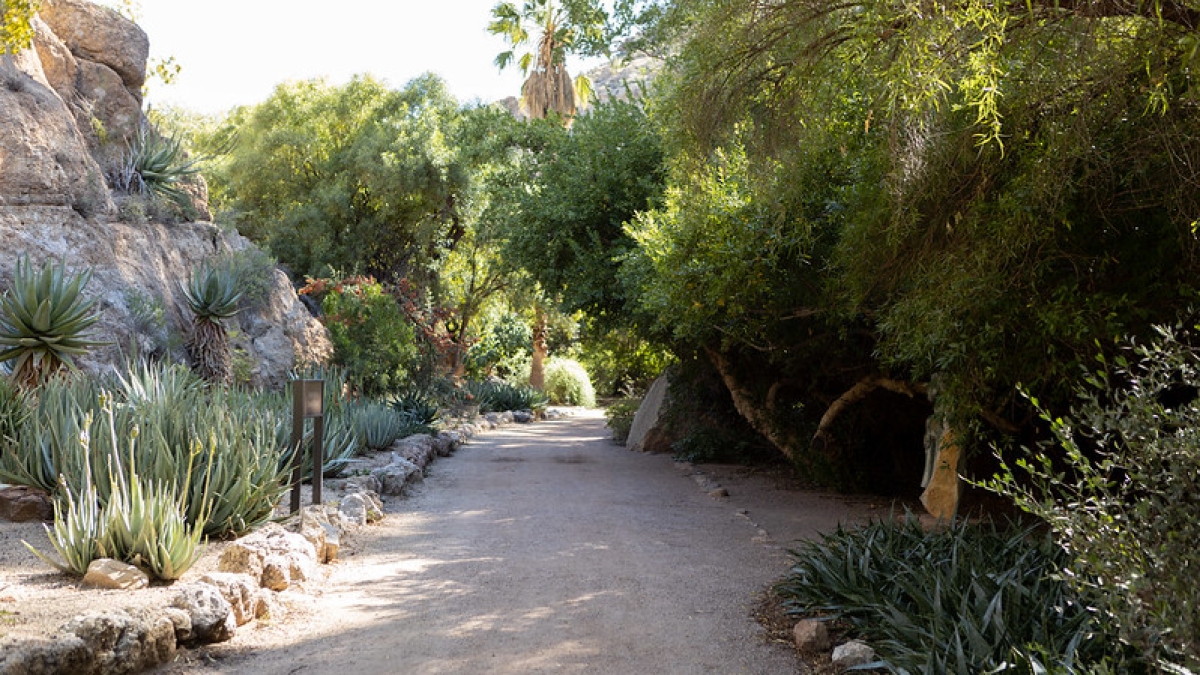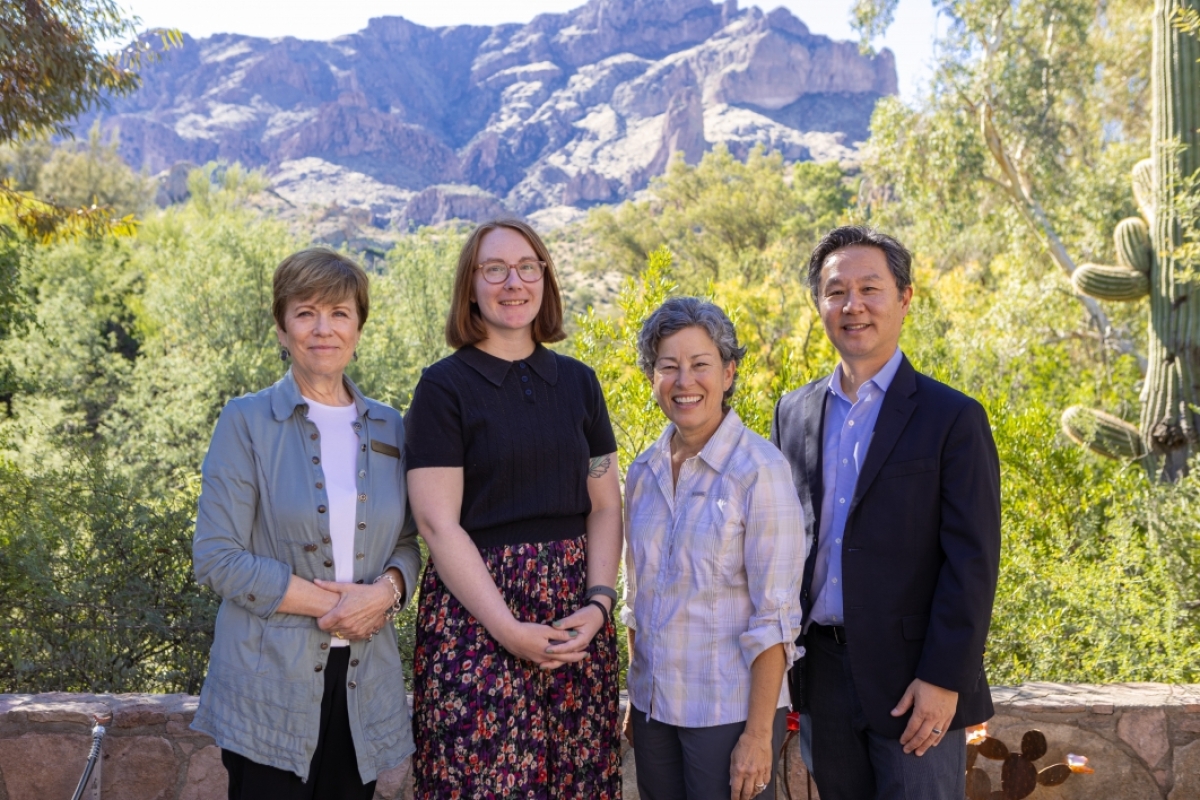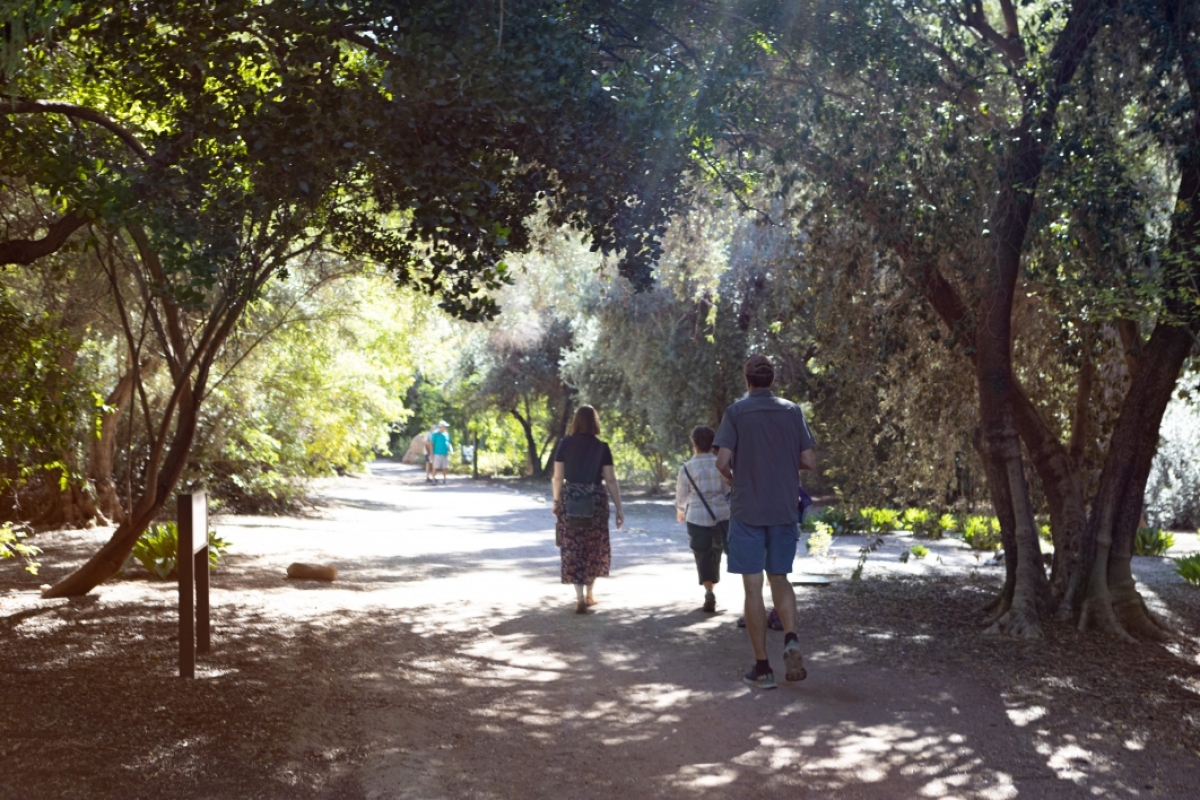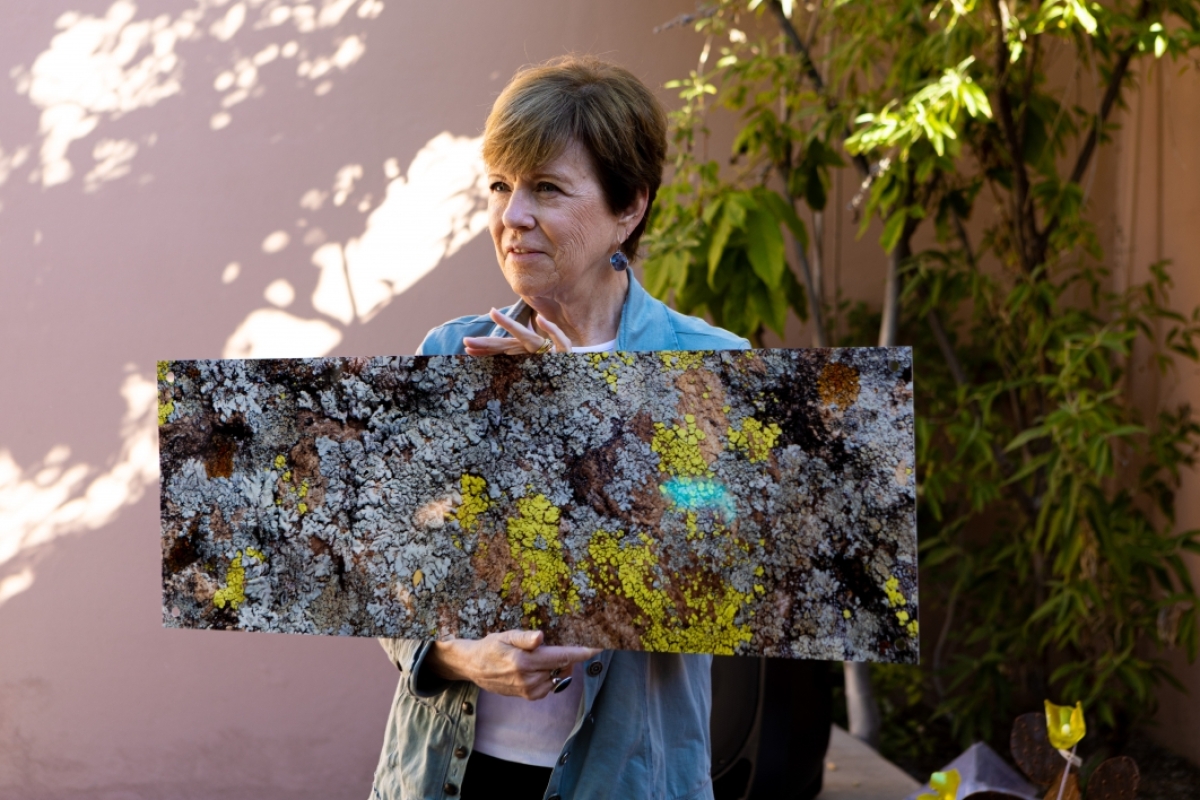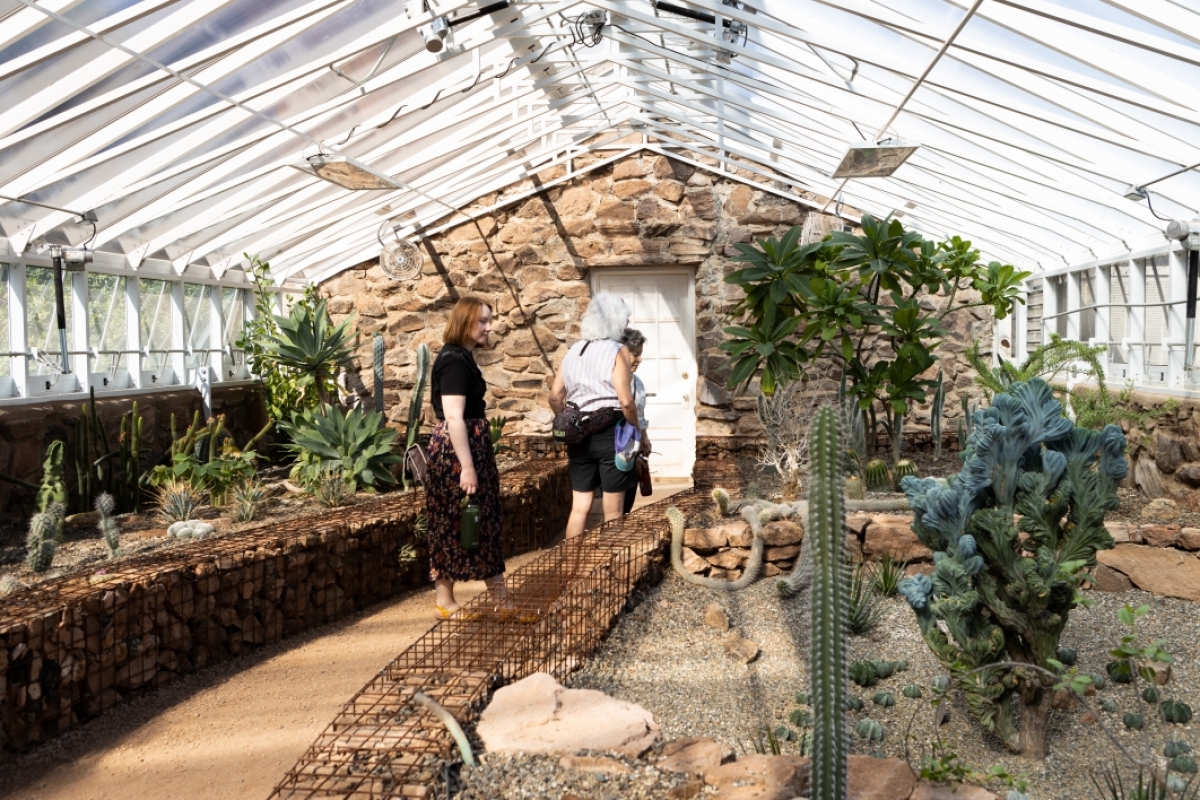Arizona State University has announced a new partnership with the Boyce Thompson Arboretum, a collaboration that includes the new Bernard “Bill” Benson Research Award.
The Benson Award will invest $300,000 over the next three years to further the research and education goals of the arboretum and Arizona State University.
Brit Burgard, a master’s student studying plant biology and conservation, and Guillermo Ortiz, a doctoral student studying environmental life sciences, from the School of Life Sciences are the first award recipients.
An Arizona native, Burgard grew up knowing about the arboretum and later worked there while at ASU. She was excited to hear about the funded research opportunity.
“It’s a wonderful collaboration between Boyce Thompson Arboretum and ASU,” Burgard said.
The award will allow Burgard and Ortiz to pursue their research with hands-on access to the arboretum’s extensive plant collections. This will help them pursue publication and advancement in the field of desert plants, conservation and impacts of climate change on desert life and ecosystems.
“I do flora for my master’s program related to the telegraph wildfire that burned in 2021,” Burgard said. “I will be collecting plant specimens and preserving them. Some will go to the Boyce Thompson Arboretum, and the rest will go to the ASU Arboretum.”
As part of her research, Burgard will also be looking at saguaro restoration and making it more cost effective.
Ortiz will be working with lichens and has set up a permanent monitoring plot at the arboretum. Using 3D photogrammetry, which takes pictures of various angles of the site, he will monitor growth of lichens in the arboretum.
The mission of the arboretum is to inspire appreciation and stewardship of desert plants, wildlife and ecosystems through education, research and conservation. This new partnership with ASU will help promote interest in the Sonoran Desert for students of all ages, with a particular focus on the young people in the Arizona towns of Superior, Miami and Globe.
“Today isn’t just about the Benson Fund but also to begin talking about all the ways that we can be working together. Our mission here encompasses not just desert plants, but also wildlife and ecosystems and education, research and conservation around those topics,” said Lynne Nemeth, executive director at Boyce Thompson Arboretum, during the partnership announcement on Oct. 21.
Future opportunities for ASU and the arboretum could include endangered and rare plant species research, developing a rare plant conservation plan, identifying which plant species are most susceptible to climate change and developing survival plans and building experimental gardens to assess climate change impacts on particular genotypes and aid adaptation strategies such as managed relocation.
“There’s also soil and moisture studies, curricular engagement, seed collection programs for post-fire restoration, documentation of heritage collections, invasive species removal protocol and more,” Nemeth said.
The partnership will also bring new opportunities to the Desert Humanities, an initiative at ASU’s Institute for Humanities Research that provides environmental experiences with the Desert Southwest.
“The collaboration allows us to reach broad publics with our planned talks and workshops at the arboretum,” said Ron Broglio, lead of the desert humanities program at ASU.
“For humanities scholars at ASU, desert humanities can offer writing retreats at the inspiring ecological surrounds of the Boyce Thompson,” he said.
The Benson Award is funded by Shelly Esque, Lenni Benson and their families and is named in honor of their father. Bill Benson received a Bachlor of Science in chemistry in 1949 from the then-called Arizona State Teachers College. He was first curator and then assistant director of the arboretum from 1948 to 1962.
Benson was dedicated to ensuring that the arboretum could continue its legacy as the first botanical institution in the U.S. dedicated to the study and development of arid land plants.
“We decided to establish a fund that would promote the relationship between the Arboretum and ASU and really get the arboretum back into the research game,” Esque said. “So that’s what this fund is all about, to jumpstart the relationship with ASU and honor my dad."
Situated on 372 acres of scenic upland Sonoran Desert just 30 minutes from Mesa, Arizona, Boyce Thompson Arboretum is Arizona’s oldest and largest botanical garden and is on the National Register of Historic Places.
Collections include plants from the U.S., Mexico, Australia, Madagascar, India, China, Japan, Israel, South America, the Middle East, Africa, the Mediterranean and the Arabian Peninsula — more than 20,000 plants within 105 acres of gardens.
Approximately 30% of the arboretum’s plant species are considered species of conservation concern.
“This has been a great day to not only see the excitement around the Benson Fund, but all of the future opportunities,” said Kenro Kusumi, dean of natural sciences for The College of Liberal Arts and Sciences. “Beyond astronomy, geological sciences, ecology, plant biology, desert humanities and everything in between. We are really going to see the next generation of scientists and scholars.”
Lauren Whitby contributed to this story.
Top photo: On Friday, Oct. 21, ASU announced a new partnership with the Boyce Thompson Arboretum and celebrated with guests at Discovery Day. The mission of the Arboretum is to inspire appreciation and stewardship of desert plants, wildlife and ecosystems through education, research and conservation. Photo by Meghan Finnerty.
More Science and technology
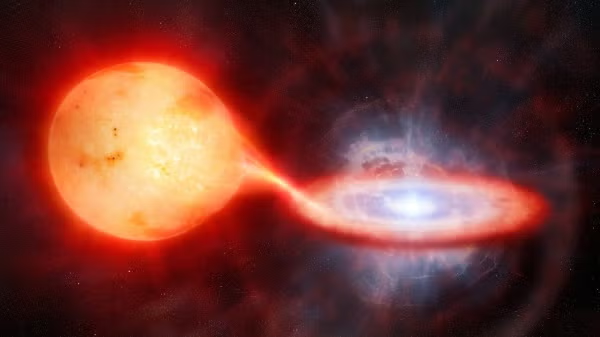
Astronomers observe ultra-hot nova with unexpected chemistry
A team of astronomers, including Arizona State University Regents Professor Sumner Starrfield, has uncovered an exceptionally hot and violent eruption through the first-ever near-infrared analysis of…
Statewide initiative to speed transfer of ASU lab research to marketplace
A new initiative will help speed the time it takes for groundbreaking biomedical research at Arizona’s three public universities to be transformed into devices, drugs and therapies that help people.…
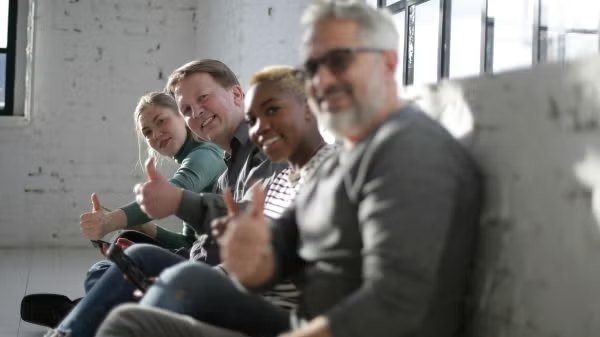
ASU research seeks solutions to challenges faced by middle-aged adults
Adults in midlife comprise a large percentage of the country’s population — 24 percent of Arizonans are between 45 and 65 years old — and they also make up the majority of the American workforce…
